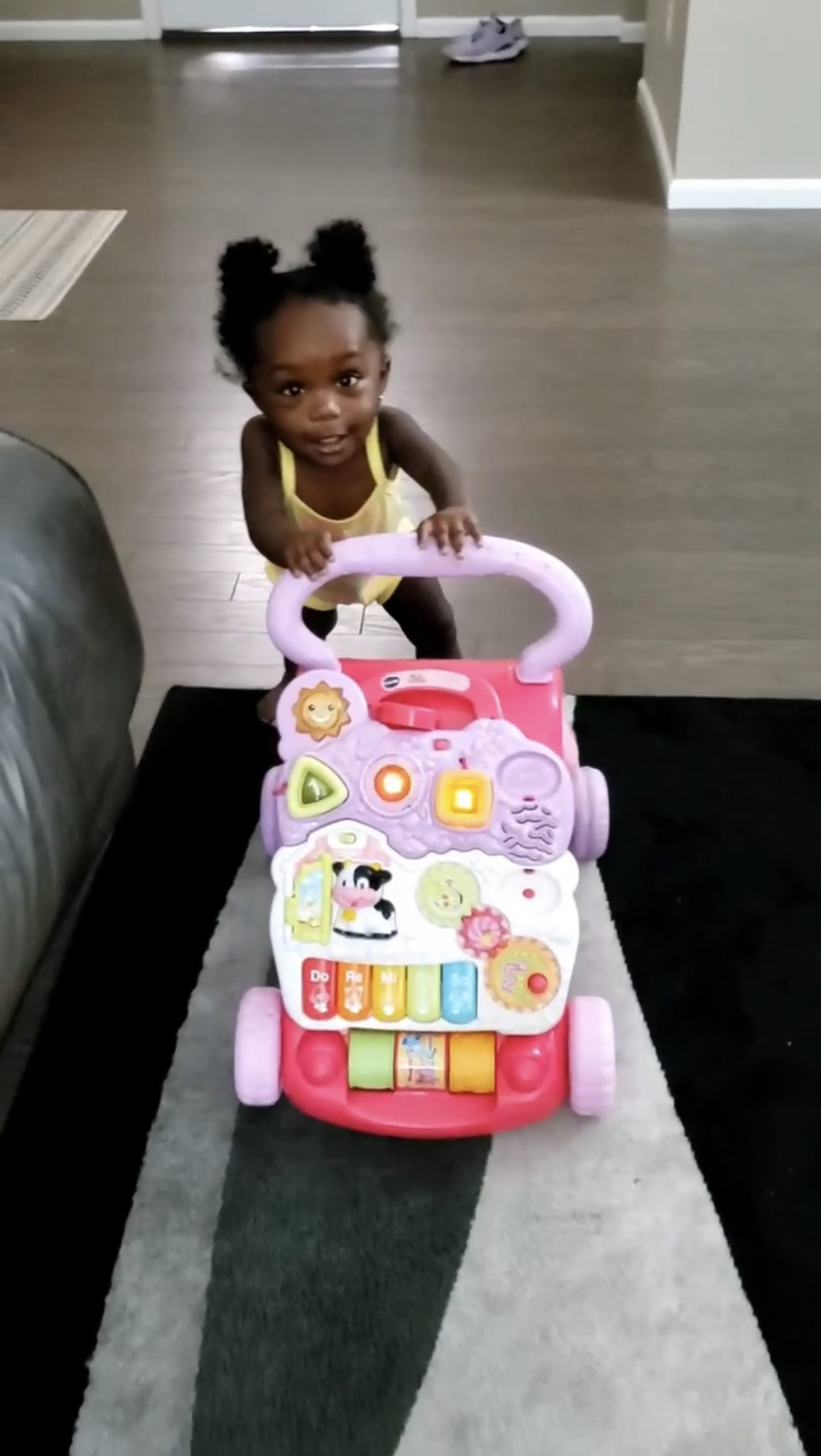Solace Blog
- Activities19
- Autism & Behavioral4
- Community154
- Early Intervention71
- Events & Giving Back20
- Extraordinary Kids22
- Family Caregiver4
- Home Care Therapy60
- News94
- Parent Articles83
- Patient Testimonial21
- Pediatric Therapy77
- Pediatric Therapy Career46
- Private Duty Nursing1
- School-Based Services1
- Telehealth Therapy27
- Tips & Advice66
Summer Reading List: Books to Inspire Therapist Growth
Cooling Off with Aquatic Therapy: Benefits and Best Practices
Sensory Activities For Kids

From School To Home: Christian’s Shift To Impactful Therapy
Speak, Listen, Connect: 6 Communication Strategies for Therapists

Jada Takes First Independent Steps and Stair Negotiation
After Jada’s first birthday and healthcare check-up, her pediatrician observed that Jada was still not walking and was referred to Solace Pediatric Healthcare for therapy. The plan of care for Jada, under the guidance of physical therapist assistant Kristen, was to help her walk without assistance, negotiate up and down the stairs, and walk on uneven surfaces.
“We have been taking part in several types of therapy exercises this past year, including holding her hands to walk and using her walker,” adds Kristen.
Jada’s mother, Sarah, has been very active during her treatment sessions. She wants to learn everything Kristen is doing so she can practice with her when she leaves.
“The in-home sessions really helped me because we were able to use things in my house that I can use after the therapy with my daughter at home,” adds Sarah.
Benefits of In-Home Physical Therapy
Children learn and grow in their most natural and comfortable environment with the people who know them best — family members. We provide in-home pediatric physical therapy in a nurturing environment where children can grow, learn, play and thrive while receiving care in the security of their home. Our physical therapy team works with the family, physicians and specialists to create the best individualized plan for your child.

While developmental milestones focus on children 0-4 years, our team provides comprehensive pediatric physical therapy to children of all ages, up to 21 years of age. We treat several disorders and focus on a variety of skills during pediatric therapy, including:
- Strengthening – Core strength, balance, control
- Flexibility – increase range of motion, and improve overall movement
- Balance – Muscles are able to control posture and keep the body upright
- Coordination – Coordinating both sides of their body can have difficulty completing daily living tasks
- Positioning – Positioning your infant to switch the direction that they are laying is recommended to prevent flatness to one side of their head.
- Gross motor skills – Require whole body movement such as walking or sitting upright at the table
- Neurodevelopmental Therapy (NDT) – developed to help children who have difficulty controlling movement as a result of neurological challenges
- Functional mobility – a person’s ability to move around their environment and complete everyday tasks.
- Neurological disorders – Cerebral Palsy, traumatic brain injury, stroke
- Range of motion – the measurement of the amount of movement around a specific joint or body part
- Locomotor skills – Running, skipping, jumping; the foundation of human movement
- Play skills – throwing and hitting balls, problem solve challenges and generalize skills from one activity/toy to another
Mother Amazed With Jada’s Progress, Solace Experience
Jada has now progressed into using pillows for her to walk, step stools for her to walk up and down like she does on the stairs.
“The experience with Kristen was one of the best in my entire life. I believe PT is her calling. She really knows her job. She is flexible, her communication is phenomenal, and she was extremely patient with my daughter. My daughter is walking independently without a walker, and she is actually running and able to go up and down the stairs,” said Sarah.
“Kristen’s positive attitude made me relax and she never gave up, although sometimes my daughter just wants to play. Kristen made sure we achieved our goal and exceeded…I have already started recommending her to people. She is the best so far,” adds Sarah.
“The overall experience with Solace Pediatric Healthcare has been the very best. I was comfortable in my home and Kristen made me comfortable with the therapy. Now I can train my daughter because of the skills I acquired from Kristen,” adds Sarah.
“Solace Pediatric Healthcare is the best for every parent who has a child and is worried or has been told your child cannot walk. Solace is the best for kids and their parents. I am a mother and I will recommend every parent who needs therapy for their kids to call them.”
How to Refer Your Child
Solace Pediatric Healthcare is the leading provider of pediatric nursing, family caregiver, occupational, physical, speech and feeding therapy services. Since 2005, our clinicians have provided pediatric care to children from birth to 21 years of age.
At Solace, we’ve instilled a culture built on trust, communication, teamwork and accountability. Our mission is to provide pediatric clinical services to help children and families live their best lives.
- I want to refer my child for an Evaluation/Therapy. If you know you would like to speak to our patient advocate to discuss scheduling an initial evaluation with a licensed pediatric therapist, simply complete and submit the Referral Form so we may contact you. Please provide as much information on the secure/encrypted form as possible as it is required to begin the process. We do accept Medicaid and most insurances.
- I Want to Be Contacted. If you would like to speak with our patient advocate for more information prior to submitting a Referral Form, simply complete the Contact Me Form and submit.
- If you prefer to contact us to discuss your child, please call our team. You can reach us by phone at: (Denver) 303.432.8487; (Colorado Springs) 719.623.5463; (Northern Colorado) 970.775.8476; and (Pueblo) 719.695.4535.
Share this Post